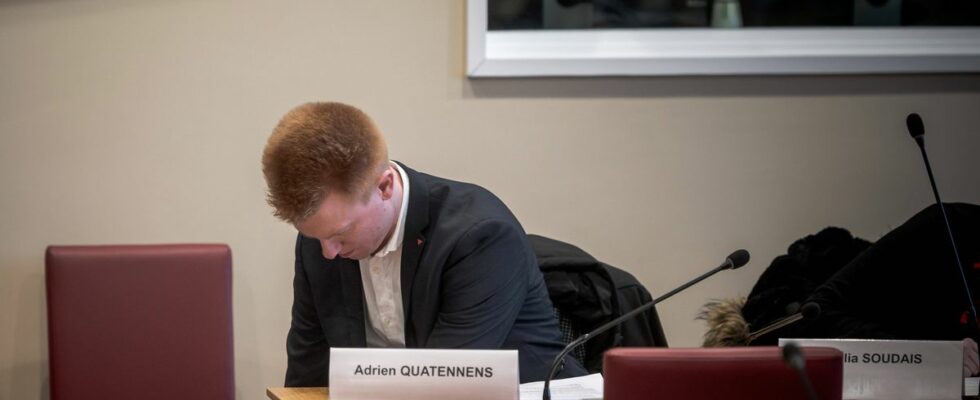On the eve of International Women’s Rights Day, the National Assembly will consider a Renaissance law text, proposing to impose a sentence of ineligibility on the perpetrators of certain forms of violence, in particular domestic or intra-family. This proposal from the patroness of the deputies of the majority, Aurore Bergé, comes a few months after the case of the rebellious deputy Adrien Quatennens, sentenced to four months in prison suspended for “domestic violence”.
This text will be examined this Tuesday at the end of the afternoon, after a day at the rate of the challenges the mobilization against the pension reform.
Alongside the president of the law commission Sacha Houlié, the deputy had presented it on January 11, the same day that Adrien Quatennens made a discreet return to the National Assembly. “This return cannot be ignored, it is not natural”, then noted Aurore Bergé.
Other convictions for aggravated violence referred to
His first intervention in session, at the beginning of February on pensions, provoked various reactions: relatives applauded him, while elected representatives of the Nupes left the hemicycle and deputies of the presidential majority shouted “scandal”. and “shame”. “Facts hit you and challenge our fellow citizens”, justifies Aurore Bergé, who wants an “exemplarity of elected officials” and puts “everyone before their responsibilities” in view of the vote on the bill.
It aims to extend the mandatory additional penalty of ineligibility to a series of aggravated acts of violence: those committed on a minor under the age of 15, a vulnerable person, the spouse, with a weapon, or even in the event of racist motivation.
The cases concerned by the text are those where the violence has resulted in total incapacity for work less than or equal to 8 days, or no ITT – the law already provides for a mandatory ineligibility sentence for five or ten years for violence caused an ITT of more than 8 days.
“The only question asked is: do or do not the convicted persons deserve to stand for the votes of the French? “, answers Aurore Bergé to those who accuse her of wanting an “anti-Quatennens” law. She recalled that the bill, if adopted by Parliament, will not be retroactive and will not apply to Adrien Quatennens, a close friend of Jean-Luc Mélenchon.
A handful of amendments will be discussed on Tuesday, mostly coming from environmentalists. They relay in particular a request from a feminist association, the Observatory of sexist and sexual violence in politics, to extend the mandatory sentence of ineligibility to psychological violence, in connection with the Julien Bayou case.

